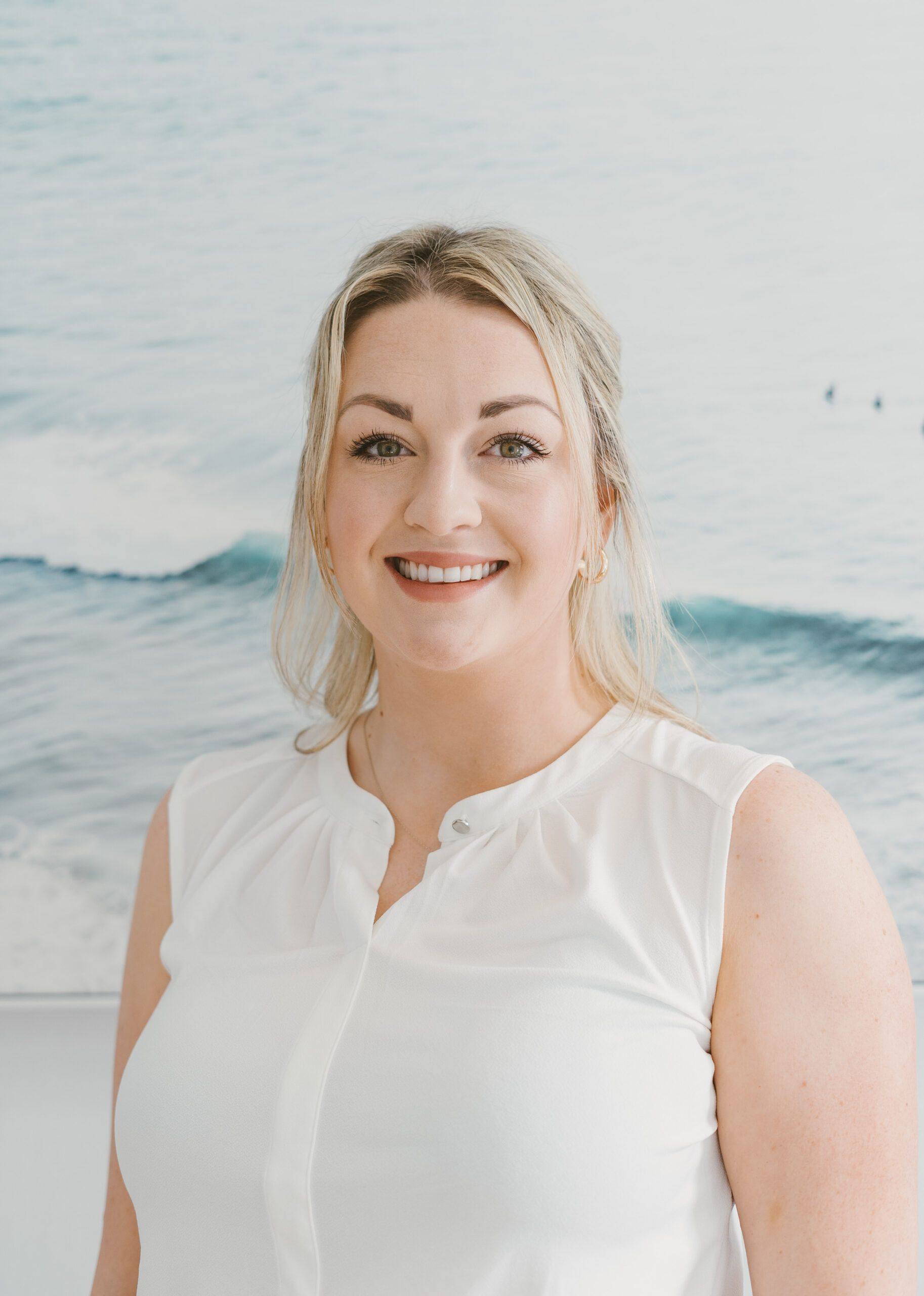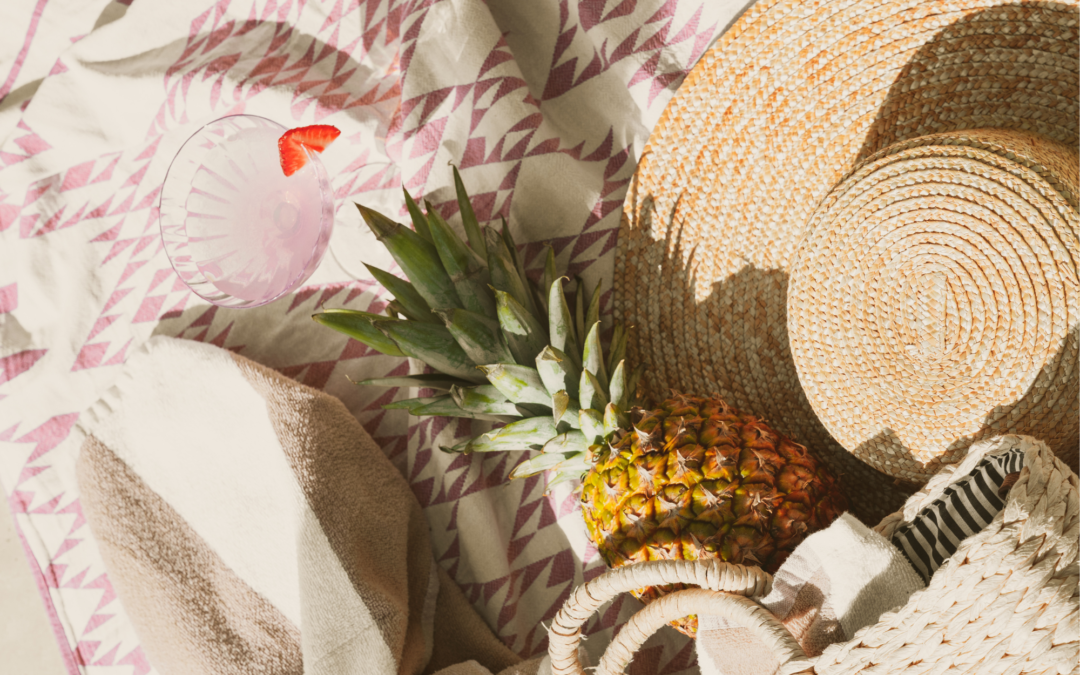It’s that time of year, the sun is sticking around later in the evening and the beach is now flooded with people playing spikeball. It is officially Hot Girl Summer!
There’s a chance that you’ve heard of hot girl summer. This saying came into our public consciousness in 2019, when Megan Thee Stallion released her hit single by the same name. A phrase made increasingly popular by social media, hot girl summer has come to represent the time of year where ladies take to the beach or bar to spend time with their friends, pose for photos and make sure they’re looking their best. While hot girl summer has the intention of encouraging body positivity and self-love, it is not without its pitfalls. Read along for some tips to navigate your hot girl summer while showing kindness to yourself.
Practice self-compassion
When the sun starts staying out longer, we swap our long pants and sweaters for swimsuits and shorts. For many people, this summer clothing shopping can act as an additional stressor, and a trigger for negative body image (Tiggemann & Lacey, 2009). During this time, we can see an increase in negative self-talk and overall body dissatisfaction. Turning away from self-judgement to self-compassion can help to alleviate our discontent, and leave you feeling more positive towards yourself and your body (Beadle et al., 2021).
Self-compassion is a big concept, but can be broken down into its smaller components; mindfulness, self-kindness, and common humanity (Nightingale & Cassin, 2023). Whether you’re shopping for new clothes, or trying out a new outfit for the beach, you can invite self-compassion to this experience. This may look like speaking to yourself in a warm, kind tone or noticing a negative body-thought and accepting its presence without judging it as accurate or valuable (Beadle et al., 2021). Self-compassion may include a reminder of the shared experience you have with other people, this can be a hard time for many and remembering that you’re not alone can be helpful!
Remain mindful of your social media use
Social media can be a great way to stay connected with the people we love, learn new recipes or a new life hack to employ. Social media can also cause us to become comparative to others, whether that be seeing posts of people at the beach while you’re at work or seeing influencers try on a new bathing suit haul. Social media has been linked to upwards social comparisons, where we compare ourselves less favourably to the people we see on our instagram or tiktok feeds. This habit has been shown to lead to decreased self-esteem and increased body image concerns (Warrender & Milne, 2020). By remaining mindful of our social media usage, we can try and reduce the amount of social comparisons we fall into. Try to be present when using your platforms, noticing how you feel when seeing certain posts. Remind yourself that social media is often a snapshot of a person’s best moment, and is not always authentic. When scrolling through your platforms, consider taking breaks and reflecting on whether your usage is creating positive or negative feelings.
Connect with nature
With the sun being out, the flowers in full bloom, summer is the perfect time to engage with nature. Many of us are probably familiar with the feeling of being in an office or classroom looking out the window at the gorgeous day. Though not always easy to pry away from work or school, research shows us that as little as ten minutes spent in nature throughout the day can have positive impacts on your mental wellbeing (Meredith et al., 2020). When you’re experiencing feelings of stress or anxiety, taking time to engage mindfully with nature can be a great way to show yourself compassion and take a break from daily stressors. Spending time with nature has also been linked to increased appreciation for one’s body. Nature allows one to distance themselves from societal standards and pressures of body ideals and helps to protect against negative thoughts about one’s body (Baceviciene, Jankauskiene & Swami, 2021).
Need a little extra help? Check out Uprise Psychology & Wellness’ therapists here!
References:
Baceviciene, M., Jankauskiene, R., & Swami, V. (2021). Nature Exposure and Positive Body Image: A Cross-Sectional Study Examining the Mediating Roles of Physical Activity, Autonomous Motivation, Connectedness to Nature, and Perceived Restorativeness. International journal of environmental research and public health, 18(22), 12246. https://doi.org/10.3390/ijerph182212246
Beadle, E. S., Cain, A., Akhtar, S., Lennox, J., McGuire, L., & Troop, N. A. (2021). Development and validation of the Body Compassion Questionnaire. Health psychology and behavioral medicine, 9(1), 951–988. https://doi.org/10.1080/21642850.2021.1993229
Meredith, G. R., Rakow, D. A., Eldermire, E. R. B., Madsen, C. G., Shelley, S. P., & Sachs, N. A. (2020). Minimum Time Dose in Nature to Positively Impact the Mental Health of College-Aged Students, and How to Measure It: A Scoping Review. Frontiers in psychology, 10, 2942. https://doi.org/10.3389/fpsyg.2019.02942
Nightingale, B. A., & Cassin, S. E. (2023). Self-Compassion May Have Benefits for Body Image among Women with a Higher Body Mass Index and Internalized Weight Bias. Healthcare (Basel, Switzerland), 11(7), 970. https://doi.org/10.3390/healthcare11070970
Tiggemann, M., & Lacey, C. (2009). Shopping for clothes: Body satisfaction, appearance investment, and functions of clothing among female shoppers. Body image, 6(4), 285–291. https://doi.org/10.1016/j.bodyim.2009.07.002
Warrender D, Milne R (2020) How use of social media and social comparison affect mental health. Nursing Times [online]; 116: 3, 56-59.

About the Author:
Mackenzie Bacon is a Registered Psychotherapist (Qualifying) at Uprise Psychology & Wellness. Mackenzie has a strong interest for helping people struggling with eating disorders, self-criticism, anxiety, depression and trauma. To learn more about working with Mackenzie, click here.
